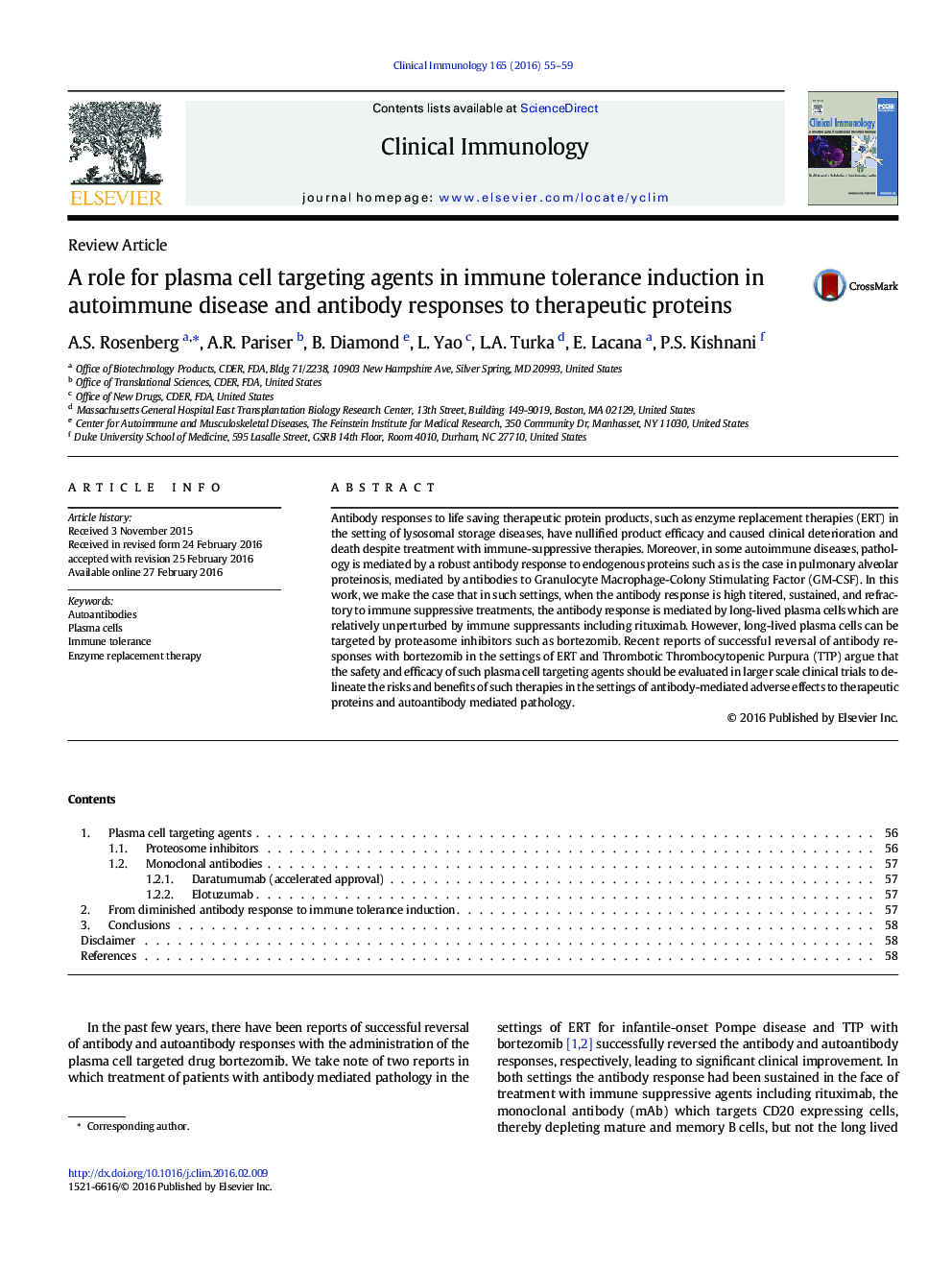| کد مقاله | کد نشریه | سال انتشار | مقاله انگلیسی | نسخه تمام متن |
|---|---|---|---|---|
| 3256803 | 1589424 | 2016 | 5 صفحه PDF | دانلود رایگان |
• Antibodies to life saving therapeutic proteins such as enzyme replacement therapies for lysosomal storage diseases may inhibit product efficacy leading to clinical deterioration and death, as in the case of Pompe Disease.
• Autoantibodies may mediate pathology in the context of certain autoimmune diseases.
• High titer, sustained antibody responses may not diminish in response to treatment with immune suppressive agents such as rituximab, methotrexate or cytoxan. Such responses appear to be mediated by long lived plasma cells which are not targeted by B cell targeting mAbs and resistant to many chemotherapeutic agents
• High titer sustained antibody responses in the context of autoimmune disease or immune responses to therapeutic proteins refractory to treatment with conventional immune suppressive agents have been dramatically diminished or eliminated by treatment of patients with bortezomib, a proteasome inhibitor, facilitating restoration of immune tolerance.
• In view of these findings, larger scale studies of proteasome inhibitors in the context of autoimmune disease mediated by robust autoantibody responses should be pursued.
Antibody responses to life saving therapeutic protein products, such as enzyme replacement therapies (ERT) in the setting of lysosomal storage diseases, have nullified product efficacy and caused clinical deterioration and death despite treatment with immune-suppressive therapies. Moreover, in some autoimmune diseases, pathology is mediated by a robust antibody response to endogenous proteins such as is the case in pulmonary alveolar proteinosis, mediated by antibodies to Granulocyte Macrophage-Colony Stimulating Factor (GM-CSF). In this work, we make the case that in such settings, when the antibody response is high titered, sustained, and refractory to immune suppressive treatments, the antibody response is mediated by long-lived plasma cells which are relatively unperturbed by immune suppressants including rituximab. However, long-lived plasma cells can be targeted by proteasome inhibitors such as bortezomib. Recent reports of successful reversal of antibody responses with bortezomib in the settings of ERT and Thrombotic Thrombocytopenic Purpura (TTP) argue that the safety and efficacy of such plasma cell targeting agents should be evaluated in larger scale clinical trials to delineate the risks and benefits of such therapies in the settings of antibody-mediated adverse effects to therapeutic proteins and autoantibody mediated pathology.
Journal: Clinical Immunology - Volume 165, April 2016, Pages 55–59
